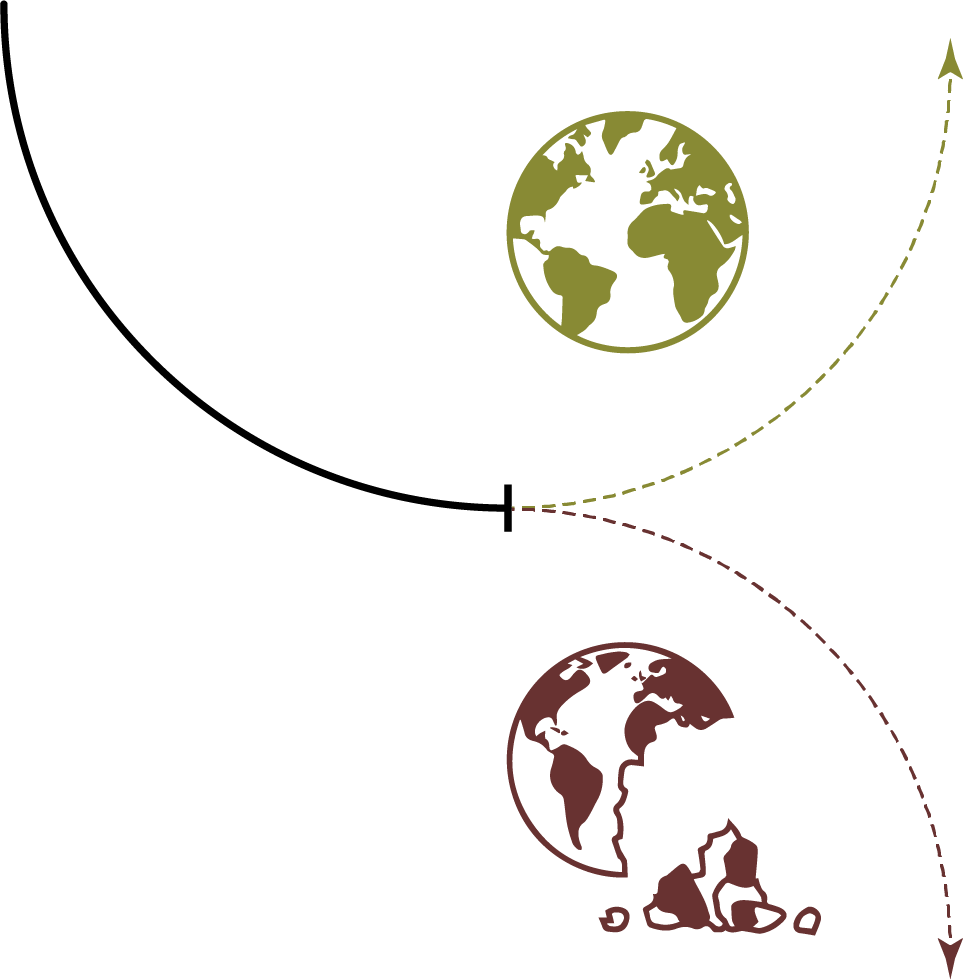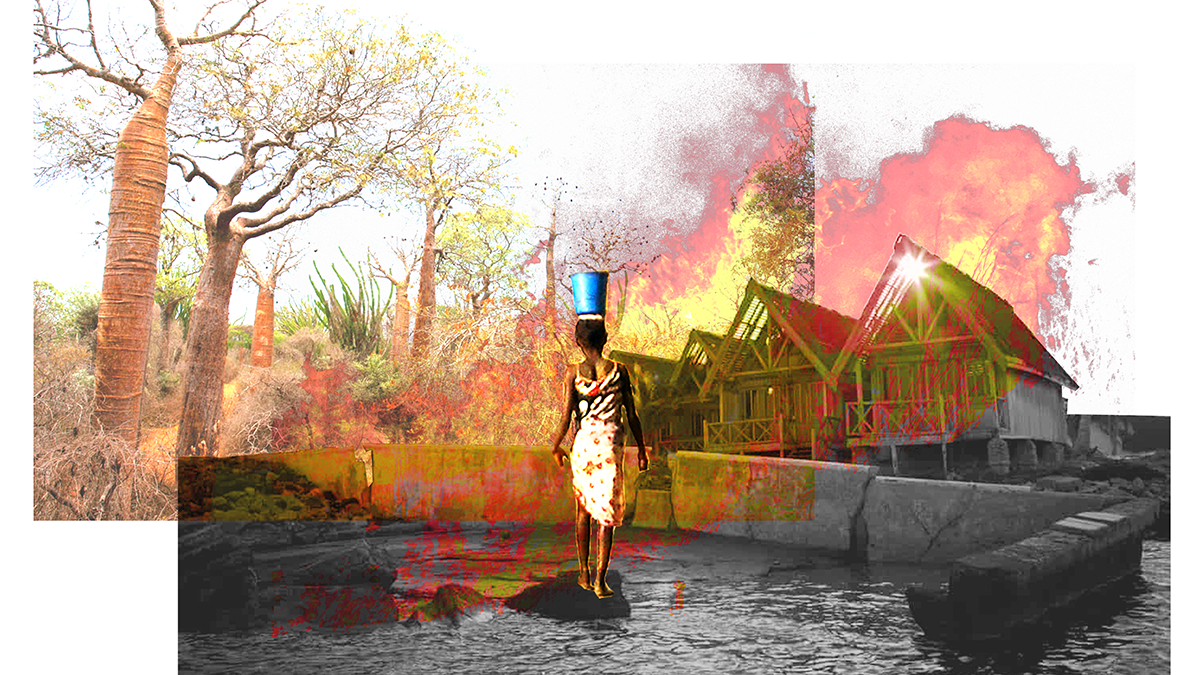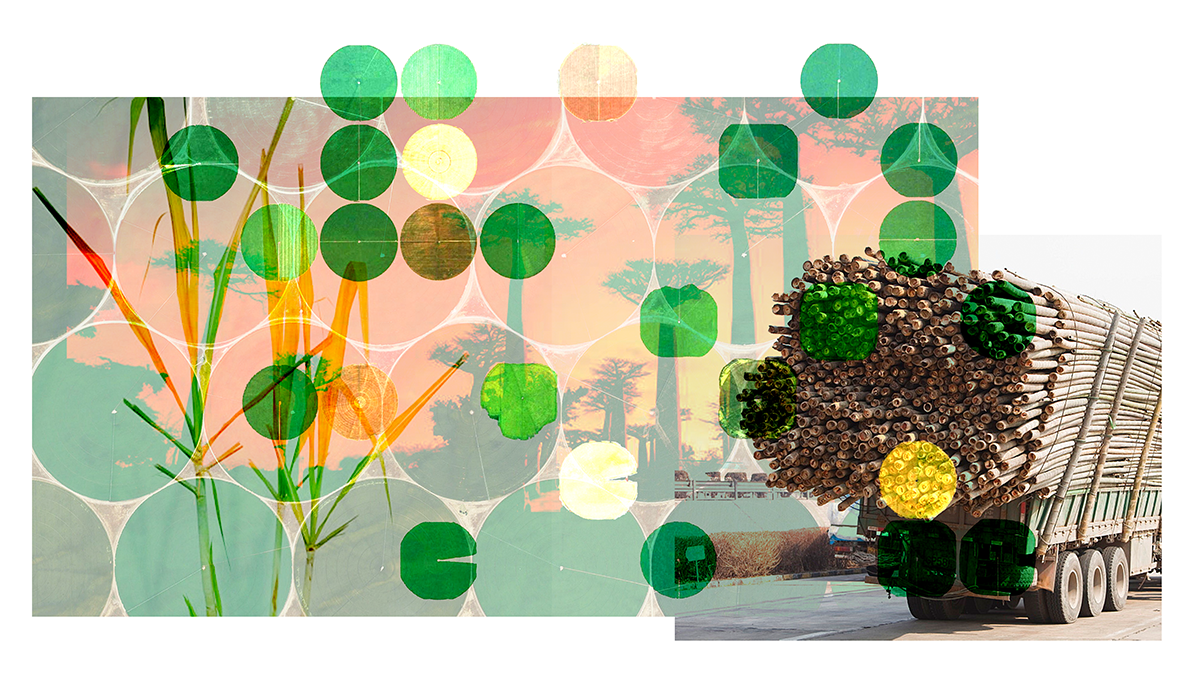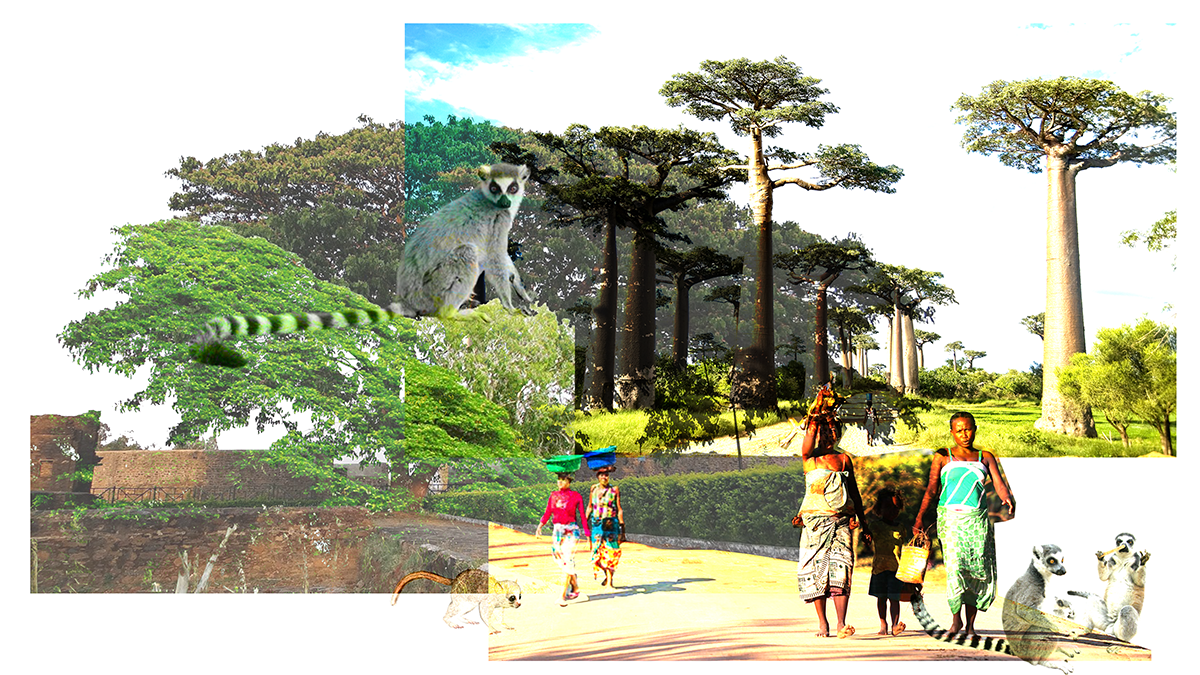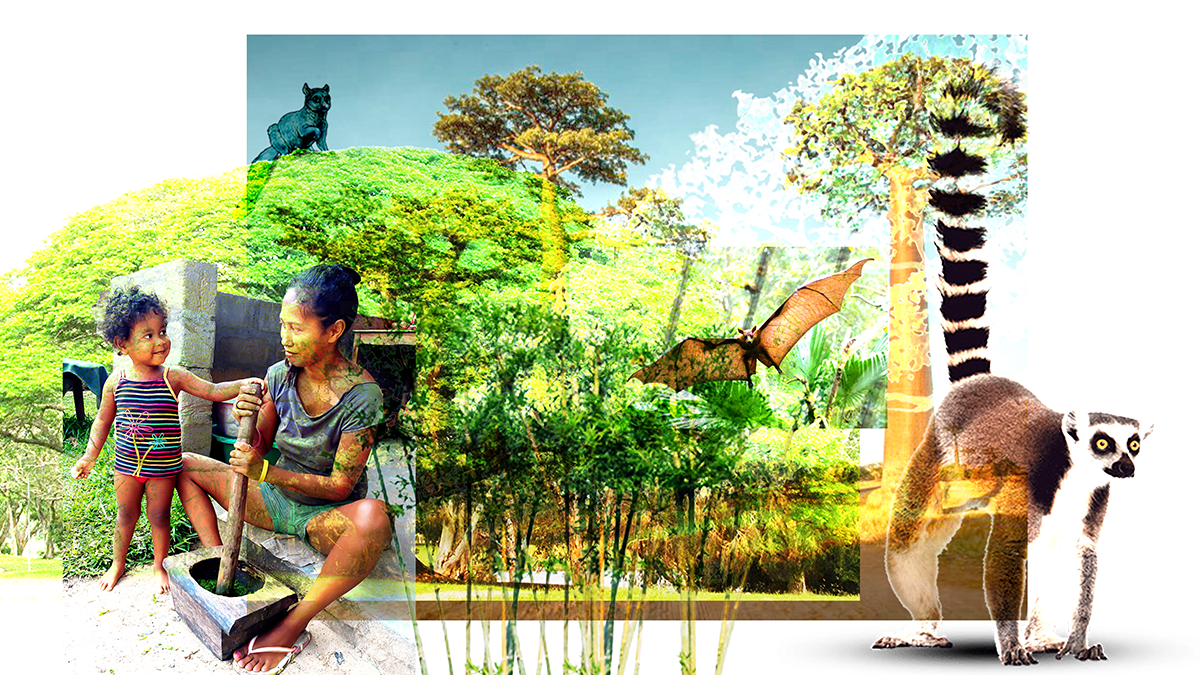"(re)_earth: The Story of Collaborative Care"
Emmaleigh Lebedz
Work In Progress, Project by Emmaleigh Lebedz and Emely Balaguera.
Degree Project Faculty: Eva Perez De Vega, Gonzalo Carbajo, Daniela Fabricius
Degree Project Faculty: Eva Perez De Vega, Gonzalo Carbajo, Daniela Fabricius
Artist Statement
The story of Collaborative Care begins in Analaiva, Menabe, Madagascar in 2025. The future of climate induced catastrophe has already arrived. In Madagascar in particular, millions of animate lives are displaced daily as habitats are destroyed. Malagasy families are losing everything, forcing increasingly futile migration.
The Analaiva sugar cane plantation was originally built to help support the Malagasy economy by replacing 250,000 sq km of forest with center-pivot irrigation systems, or crop circles. Analaiva was meant to grow and sell crops for export, but the project fails due to lack of funding, degradation of the natural environment, etc. Still, the local Malagasy people depend on this agriculture for survival. As agriculture is transforming around the world to support more local cultivation, the outdated crop circles can now provide a new home for a variety of species.
The Analaiva Collaborative Care Center supports a transformation towards a culture of care by providing a system for population growth, water access, non-human conservation, and ecological restoration through reforestation. By replacing sugar cane with bamboo, construction keeps up with migrant population growth and non-human habitat recovery without cutting down trees. People, plants, animals, and their environment are connected as our restorative intervention weaves through the young forest while they grow together over time.
At every scale, (re)_earth brings together the human and non-human to encourage community engagement through collaborative care. This provides a real opportunity for life to thrive, solely dependent on healing and restoration.
The Analaiva sugar cane plantation was originally built to help support the Malagasy economy by replacing 250,000 sq km of forest with center-pivot irrigation systems, or crop circles. Analaiva was meant to grow and sell crops for export, but the project fails due to lack of funding, degradation of the natural environment, etc. Still, the local Malagasy people depend on this agriculture for survival. As agriculture is transforming around the world to support more local cultivation, the outdated crop circles can now provide a new home for a variety of species.
The Analaiva Collaborative Care Center supports a transformation towards a culture of care by providing a system for population growth, water access, non-human conservation, and ecological restoration through reforestation. By replacing sugar cane with bamboo, construction keeps up with migrant population growth and non-human habitat recovery without cutting down trees. People, plants, animals, and their environment are connected as our restorative intervention weaves through the young forest while they grow together over time.
At every scale, (re)_earth brings together the human and non-human to encourage community engagement through collaborative care. This provides a real opportunity for life to thrive, solely dependent on healing and restoration.
Midterm Presentation
March 2021
Fall Research Booklet 1 - E. Lebedz
December 2020
Fall Research Booklet 2 - E. Balaguera
December 2020
